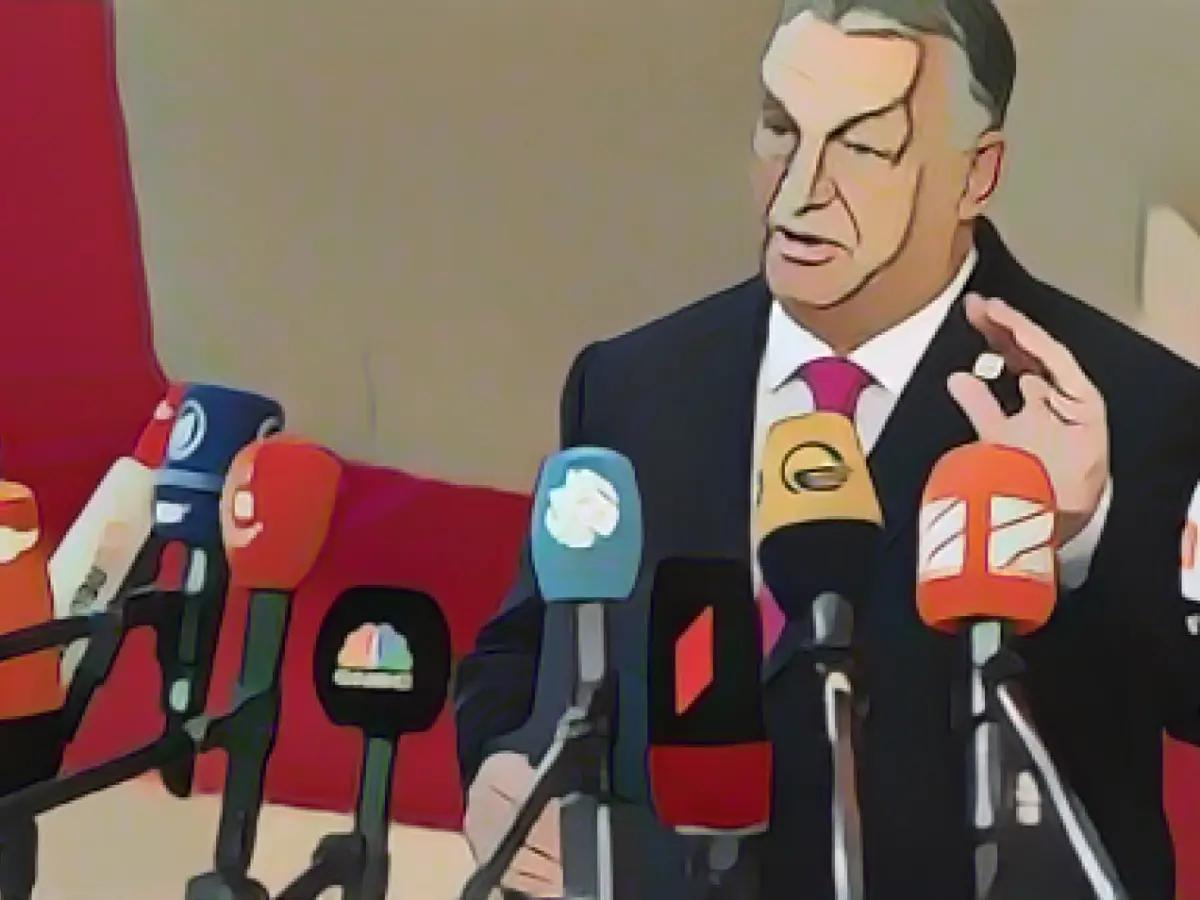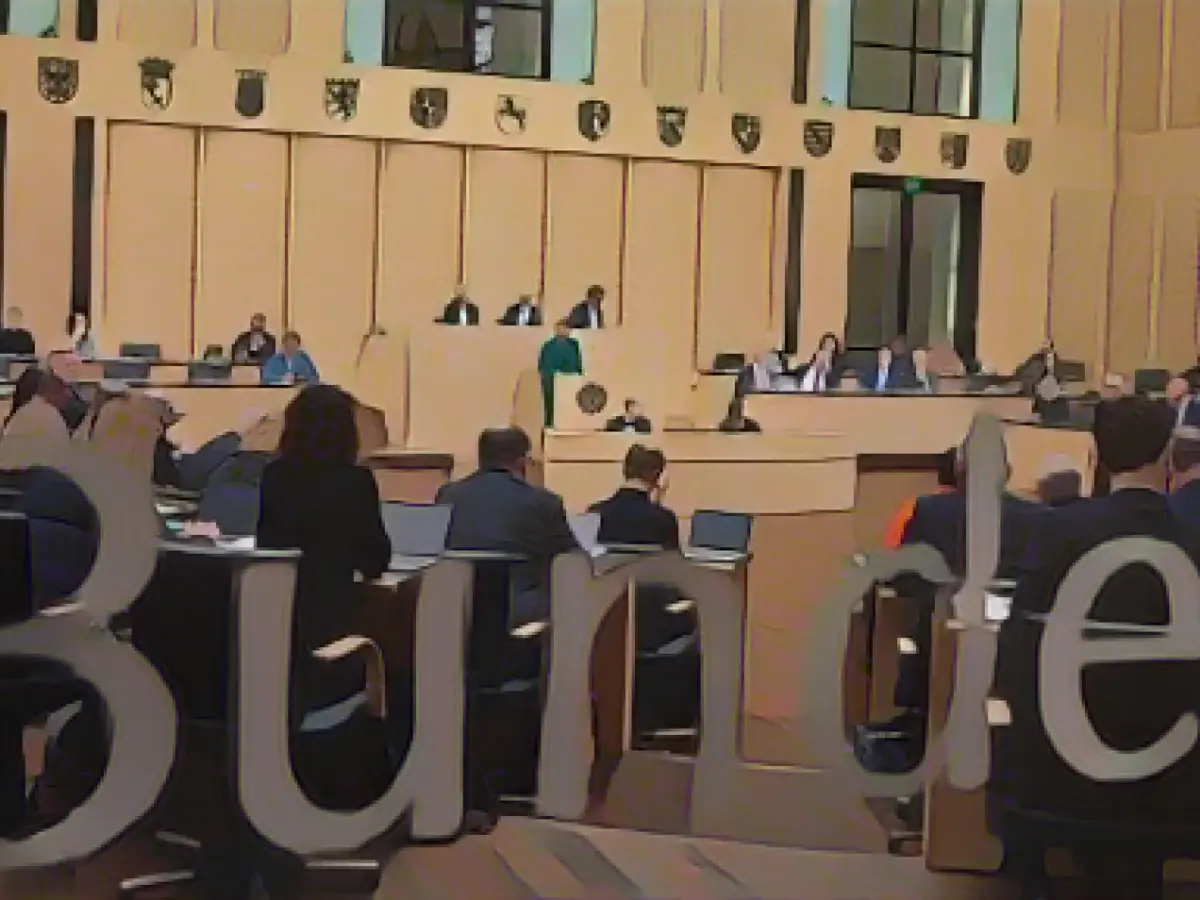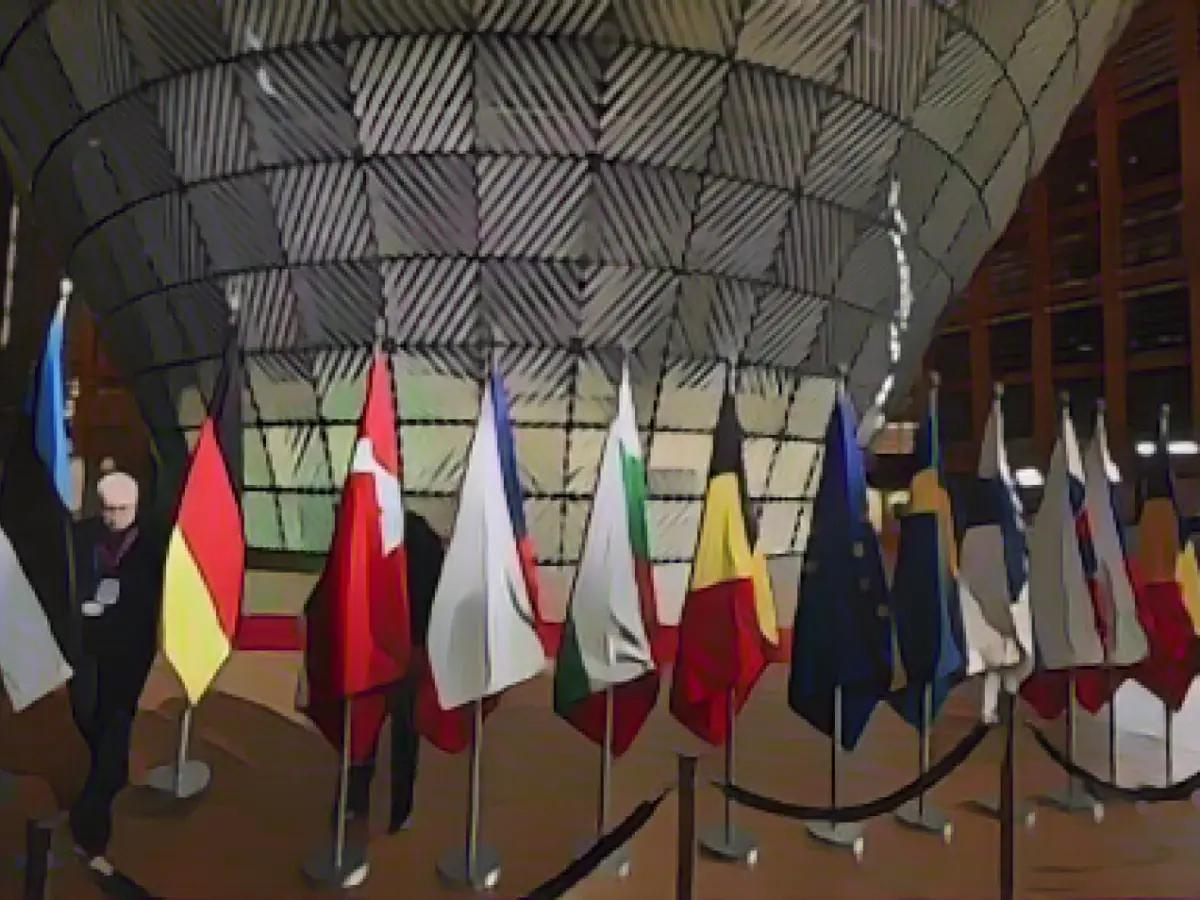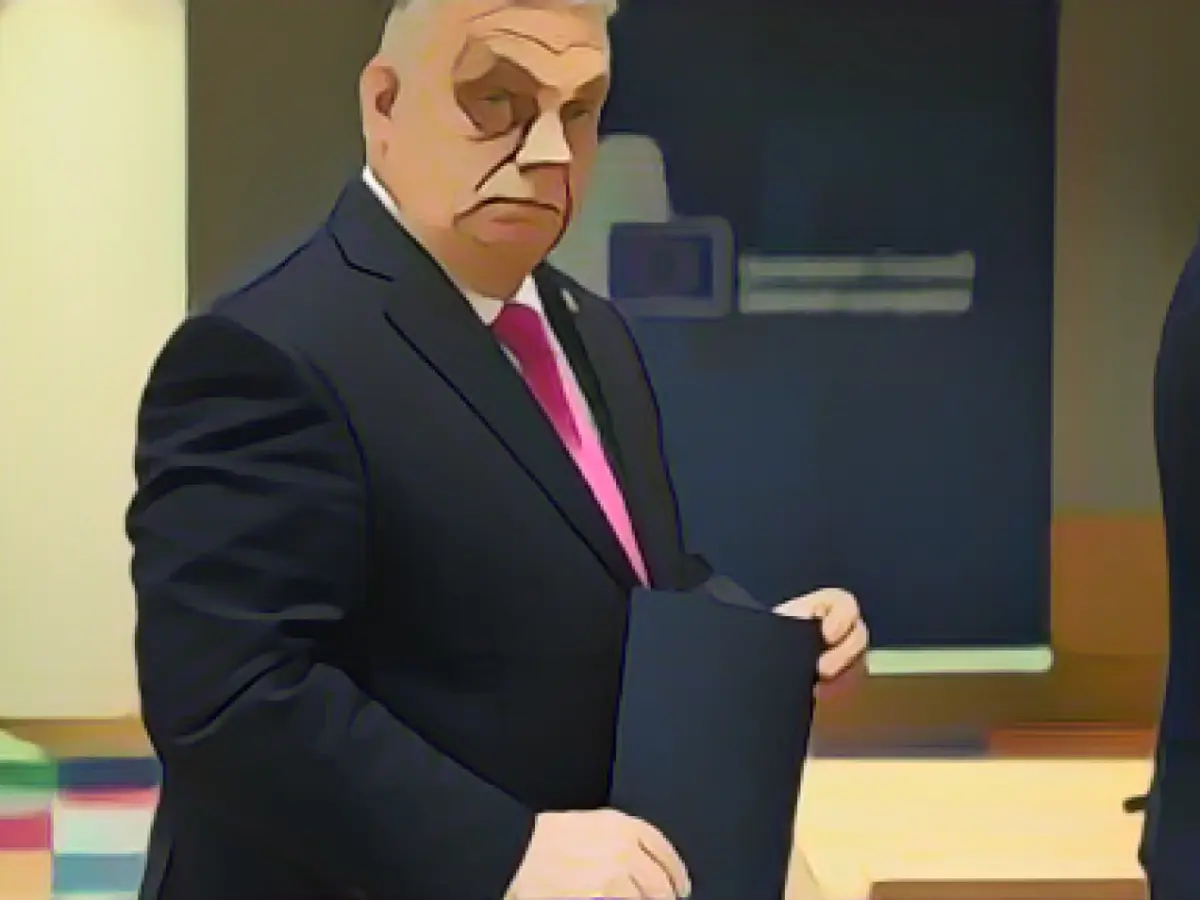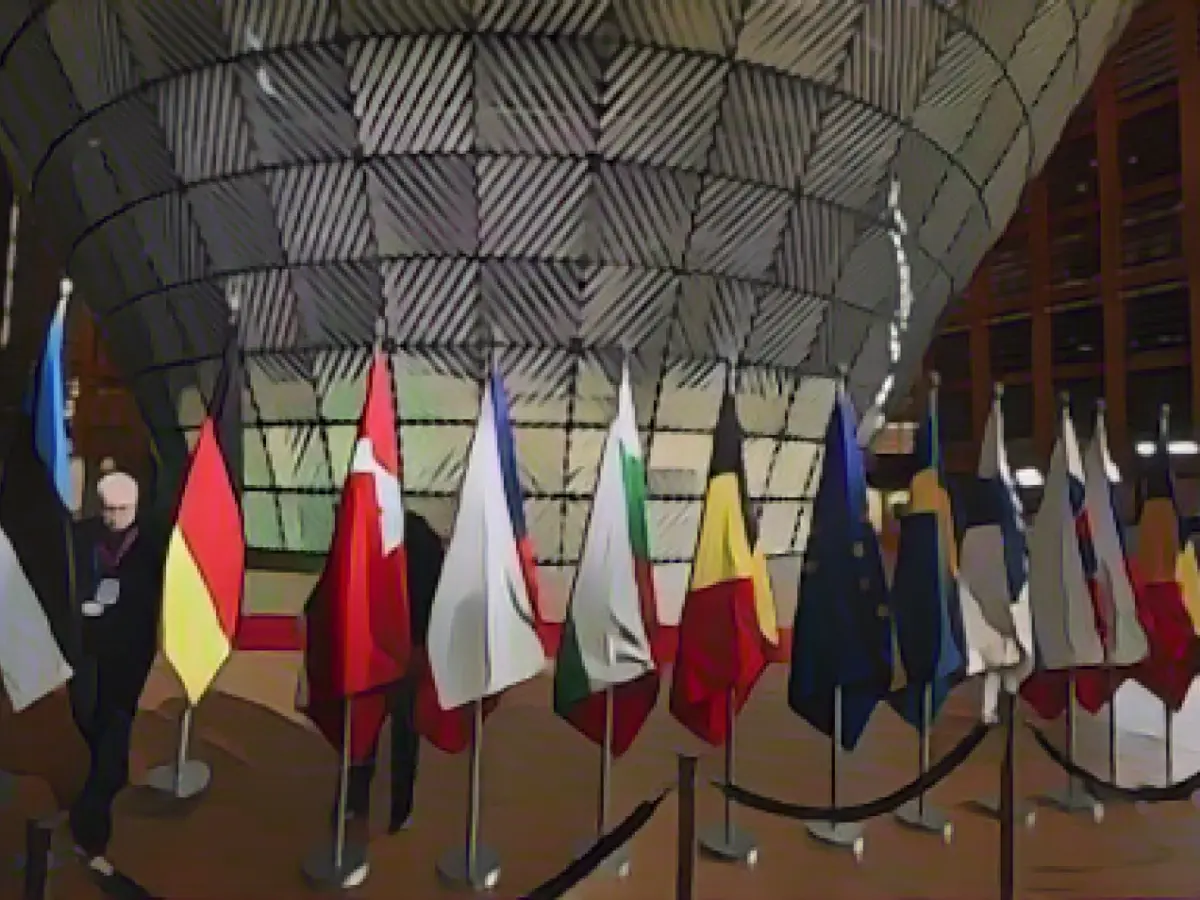Ukraine Aid: Overcoming Orban's Veto Obstacle
In a fervent video call with Europe's heads of state and government, Ukrainian President Volodymyr Zelensky voiced his concerns, "Now is not the time for half measures." Failing the summit would only elicit a satisfied grin from Russian President Vladimir Putin. The two-day gathering aimed to approve a 50 billion euro aid package to prevent Ukraine's economic collapse and initiate accession negotiations with Ukraine and its neighbor, Moldova.
However, Hungarian Prime Minister Viktor Orban, a known Russia supporter, spearheaded opposition to the aid package. Orban questioned the need for immediate financial assistance for Kiev and suggested providing funds from Hungary's own budget, rather than the EU's, to avoid committing Hungary to any obligations. The other 26 member states disagreed, fearing that an individual funding strategy would undermine the EU's united stance towards Russia.
Orban also rejected Zelensky's request for accession negotiations, arguing that Ukraine had not met the necessary conditions. European Parliament President Roberta Metsola scoffed at Orban's stance, stating that the process wasn't about a "fast-track procedure" for Kiev.
German Chancellor Olaf Scholz voiced his support for the aid proposal, encouraging consensus amongst summit participants. European Union Commission President Ursula von der Leyen and French President Emmanuel Macron attempted to negotiate a reconciliation with Orban privately before the summit but their efforts bore no fruit. The disagreements threatened to leave 26 member states at odds with Orban.
Swedish Prime Minister Ulf Kristersson expressed dismay at Orban's attitude towards Ukraine, calling it "unfair." Dutch Prime Minister Mark Rutte echoed these sentiments, pointing out that "we are not here to offer Orban something."
In an effort to appease Orban months earlier, the European Commission had released 10 billion euros for Hungary – which had been frozen due to Hungary's judicial reform dispute – prompting widespread backlash from the European Parliament. Orban himself distanced the relief funds from the Ukraine issue.
The EU summit also aimed to develop a solution to the ongoing impasse concerning additional funds for migration and future technologies. The EU's draft budget framework, including an additional 9.6 billion euros toward external border protection and migration alliances, still sparked heated debates.
Portuguese Prime Minister Antonio Costa called for a more open sentiment from Germany towards further spending in response to the Berlin agreement. Meanwhile, Spain, Ireland, Belgium, and Malta pressed for stronger language towards Israel in the Middle East conflict, drawing criticism from nations such as Germany and Austria.
Contextual Insights:
- EU leaders have engaged in negotiations with Hungary to address concerns and reached deals to address these issues, such as review mechanisms and concessions on Ukrainian minority rights.
- The EU's common budget requires unanimous approval, which is challenging but can be overcome with diplomatic efforts, compromises, and strategic maneuvering.
- Long-term commitments, such as the EU's "reference date" for Ukraine's accession to the EU by 2030, have helped build trust and cooperate with countries like Hungary.
